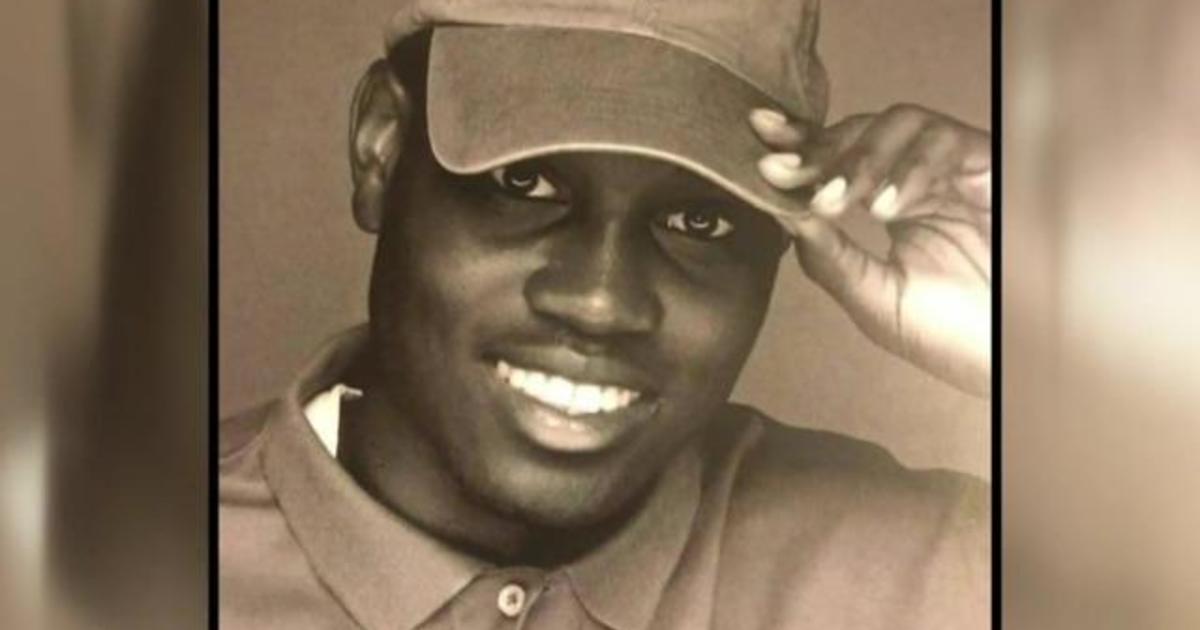Kevin Gough, the attorney for William “Roddie” Bryan sat down with “48 Hours” contributor and CBS News correspondent Omar Villafranca for his first network interview to discuss the events that led to Ahmaud Arbery’s death.
According to Gough, on the day of the shooting Bryan was at home “minding his own business,” when he saw a truck he recognized chasing a man he didn’t. So he got into his own truck and began following as “any other patriotic American would have done under the same circumstances.”
Ahmaud Arbery
“Why did he record it?” Villafranca asked. “Why not?” Gough answered.
It was Bryan who used his cell phone to record the searing video of Arbery being shot to death.
The interview is part of an all-new “48 Hours” episode, “Justice for Ahmaud,” airing Saturday, October 10 at 10/9c on CBS.
On February 23, 2020, the day he was shot and killed, Ahmaud Arbery was seen jogging in Satilla Shores, a waterfront neighborhood of Brunswick, Georgia, where Bryan lived, along with the two other suspects in the case, a father and son named Gregory and Travis McMichael.
Ahmaud Arbery is seen in security camera footage on February 23, 2020. The video shows Arbery stopped for a few minutes inside a house under construction before resuming his jog that day..
Larry English
A security camera showed that Arbery stopped for a few minutes inside a house under construction before resuming his jog that day. Gregory McMichael later told authorities he thought Arbery was a suspect in a series of break-ins in the neighborhood, although there is no evidence Arbery was involved.
Gregory and Travis McMichael told police they armed themselves, got into a pickup truck and tried to catch Arbery. And that’s when Gough says Roddie Bryan decided to follow along.
Gough insists Bryan “has never been more than a witness to this shooting.”
The viral video of jogger Ahmaud Arbery being chased and shot dead in Brunswick, Georgia, captured the attention of the nation.
Roddie Bryan
But prosecutor Jesse Evans, who also spoke with “48 Hours,” disagrees, saying “we think he’s an active participant.” Evans contends Bryan was so active that Bryan tried to box Arbery in with his truck. And authorities say Arbery’s palm print found near a dent on the truck suggest Bryan actually hit Arbery with the vehicle. Gough disputes that.
“The jury’s gonna look at the facts of this case and they’re gonna conclude that whether Ahmaud Arbery was white, Black or Martian, that Roddie Bryan wouldn’t have acted any differently on the day in question, he said.”
But just two weeks ago, prosecutors notified the court they intend to introduce trial evidence of past racial slurs investigators found on Roddie Bryan’s phone. A warning that the language is graphic:
A text sent from Roddie Bryan’s number on Martin Luther King Day this year reads: “I bet ya’ll are truly having a Monkey Parade over there.” And the racial slurs don’t stop there, though Gough says the texts are being taken out of context.
“I’ve got multiple pages of him using the N-word. And that doesn’t make him a racist?” Villafranca asked. “No, sir, said Gough. “Do you use that word?” Villafranca later inquired. “I mean, feel free to use it on national TV right now, Kevin. If you think, ‘Eh, it can be put– it can be used in a proper context.'” “It’s not a word I would use, Gough responded. “But I’m not Roddie Bryan.”
Bryan has pleaded not guilty to charges of felony murder and criminal attempt to commit false imprisonment in the death of Ahmaud Arbery. The McMichaels have pleaded not guilty to felony murder and aggravated assault.
